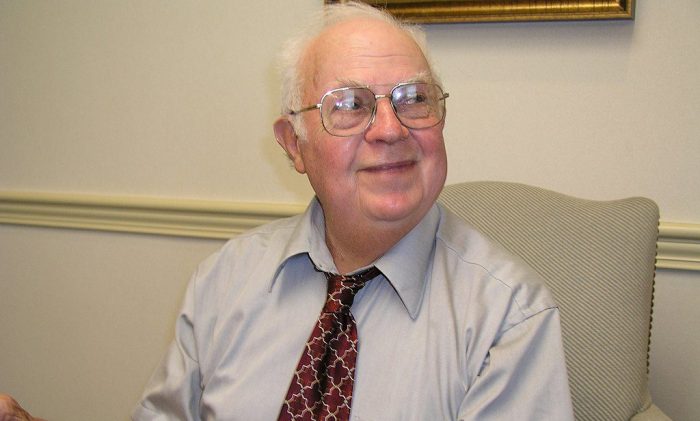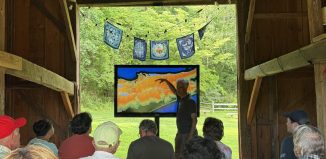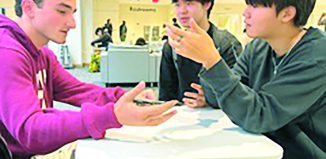D. None of the Above: Reflecting on Donald Triplett, ‘Case 1’ in the autism community
By Daniel Dunaief

At a recent national meeting of experts in his field, Matthew Lerner said the gathering paused to toast the remarkable life of Donald Triplett.
Born and raised in Forest, Mississippi, Triplett died on Thursday, June 15 at the age of 89, after a full life in which his family, his community and a medical and research field around him learned about a condition he helped various communities understand.
Triplett was different from other children growing up, and in 1943, after his parents brought him to psychiatrist Dr. Leo Kanner, he became “Case 1” for a new diagnosis called autism.
“Everything we know about autism started with what was learned from Donald,” said Lerner, associate professor in Clinical Psychology at the Stony Brook Neurosciences Institute. “I’m still confident the field would have found its way to autism,” but the interaction between Triplett and Kanner helped establish some of the parameters that define a condition that researchers estimate affects about one in 36 children today.
As with people who have other diagnoses, the reaction people have to those with autism varies.
“There are two broad threads in the history of how we’ve understood, studied and treated autism since the 1940s,” said Lerner.
In one, people consider it a lifetime disability, in which the diagnosis is limiting and stigmatizing.
In the second, people see autism as a different way of being, in which individuals have an opportunity to develop a meaningful and happy life, as was the case with Triplett.
“The idea of autism as being so different and so impairing was the prototype,” Lerner said. Triplett’s life “didn’t follow that trajectory at all. He had a life filled with community in which he felt supported and accepted.”
This second model of autism, Lerner added, is achievable in “far more cases than we may have historically assumed.”
Triplett, who worked at the Bank of Forest for 65 years and traveled the world, had unusual cognitive abilities that set him apart from neurotypical people. He could multiply two three-digit numbers rapidly without a calculator. He also could look at the side of a building and could indicate the number of bricks without counting them one by one. He had perfect pitch.
As he was growing up, he didn’t interact socially in typical ways for children his age. His parents institutionalized him for a year, where he became withdrawn and disinterested. When they brought him back to their home, he became more engaged, earning a high school and bachelor’s degree in French from Millsaps College.
“He may have been the first, but he was far, far, far from the only autistic person who ended up exceeding the horizons set for him when he was young,” Lerner said.
Lerner believed people in the autistic community, like Triplett, have something to teach others about challenging circumstances.
“Kids are going to get where they are going at their own pace,” Lerner said. Being patient and kind and taking time to meet people where they are as individuals can help people grow. Lerner suggested that “we need to be okay with the idea that what that person is going to be is themselves and the best thing we can do is create a space” for that development to occur.
People will develop when they don’t feel like they are failing because people around them are setting expectations that don’t match them or are underestimating what they can do, he added.
“It’s important to feel validated and valued” through life, Lerner said.
Parents of children from a wide range of abilities sometimes hear what their offspring will never do.
People are frequently “proven wrong” by that child in that family, he added.
As for Triplett, Lerner encouraged people to watch the movie ’In a Different Key” about the person later known as Case 1.”







